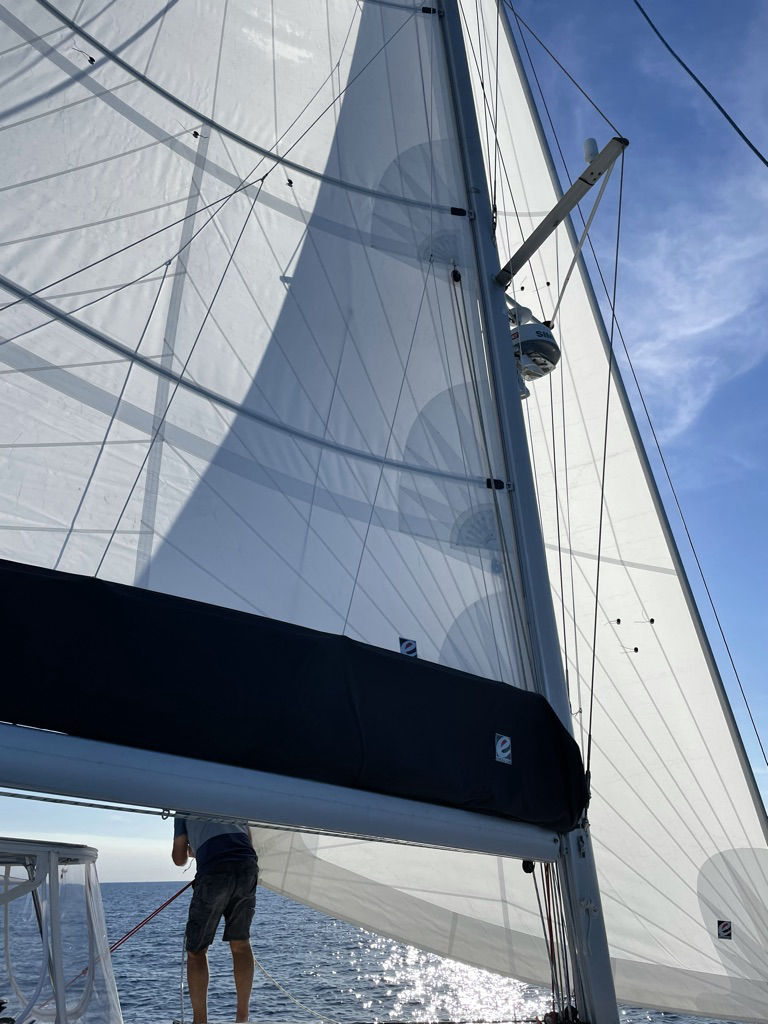Want to write a CREW MANUAL? We have an easy 6-step method to write an effective procedure

Bringing all this theory together
With careful word choice, your introduction of crew to a yacht, your expectations, the rules that apply and boundaries, can be generally overcome without a word being said.
Is this overboard? Many will say yes. Does it help? Most definitely, especially with safety-at-sea and with any legal issues in particular with crew who are not friends or family.
Read more

Information Modules
On our website, click the 'joining us' dropdown menu. There are two selections.
The 'joining us > inshore guests' - unknowingly introduces new crew to some ‘Must do…’ and ‘Can’t do…’ information, as well as basic safety information before they even get to the yacht. This plays on the phycological side of learning and memory.
The 'joining us > offshore crew' - is for our more serious offshore crew. While they are mostly friends of mine, this is more serious. A crew member here must be able to basically (and safely) handle the vessel with the captain incapacitated.
Read more
Legal understanding, or declaration.
While having a non-confrontational approach with a manual has its advantages, there are times when you really need a ‘Must do…’.
Crew need to understand the seriousness of certain things, and as a captain, be assured that this stands in a court-of-law.
What if the crew member refuses to get off the yacht in a foreign country because you have had a falling out, and they expect you to buy their air ticket home? I have heard this more than once.
Read more

Controlling gradient.
In some countries, controlling/superiority gradients (as in ‘respect for your elder who is older than me, and therefore must know more than me’), is so steep that it discourages those lower on the team ladder to effectively engage and communicate.
So how do we ensure control without the perception of being over-bearing?
Read more

The words ‘How to…’ are very particular.
Words in a document such as ‘Must do…, Training, Requirement, Have to…, Directed, You must…, Don’t…’ all introduce a psychological disciplinary barrier in many peoples’ minds.
They are very controlling words and distance the crew person from enjoyment or fun. So word choice is extremely important.
If you are paying someone to do a job, that is different. Then introducing ‘Must do…’ can be to your advantage. You see this in many professional manuals from the military, to cruise liners, and airlines.
As a cruiser, we want and need a more chilled out approach.

Using psychology behind printed material.
An option that has worked for decades is printed material. Large cruise liners use this very effectively. Their material doesn’t ramble on about every crack, rivet or opinion, but rather a ’How to…’ document, or flyer. Later, I’ll discuss the reason why I think these specific words of ‘How to…’ are so important.
Having information empowers people to help resolve challenges, and possibly the captains life (i.e. having a heart attack). Even if crew forget, a simple ‘read-and-do’ document will reap huge reward.
Read more

Advantages of providing information
There is a fine line between trying to allow crew the freedom to enjoy themselves, and the vessel owner running around trying to stem the damage, because you have offended someone.
A wrong word, or phrase quickly sows-the-seed of offence.
So how do we tackle this challenge and bring everyone onto the same page in a harmonious way?
Read more



